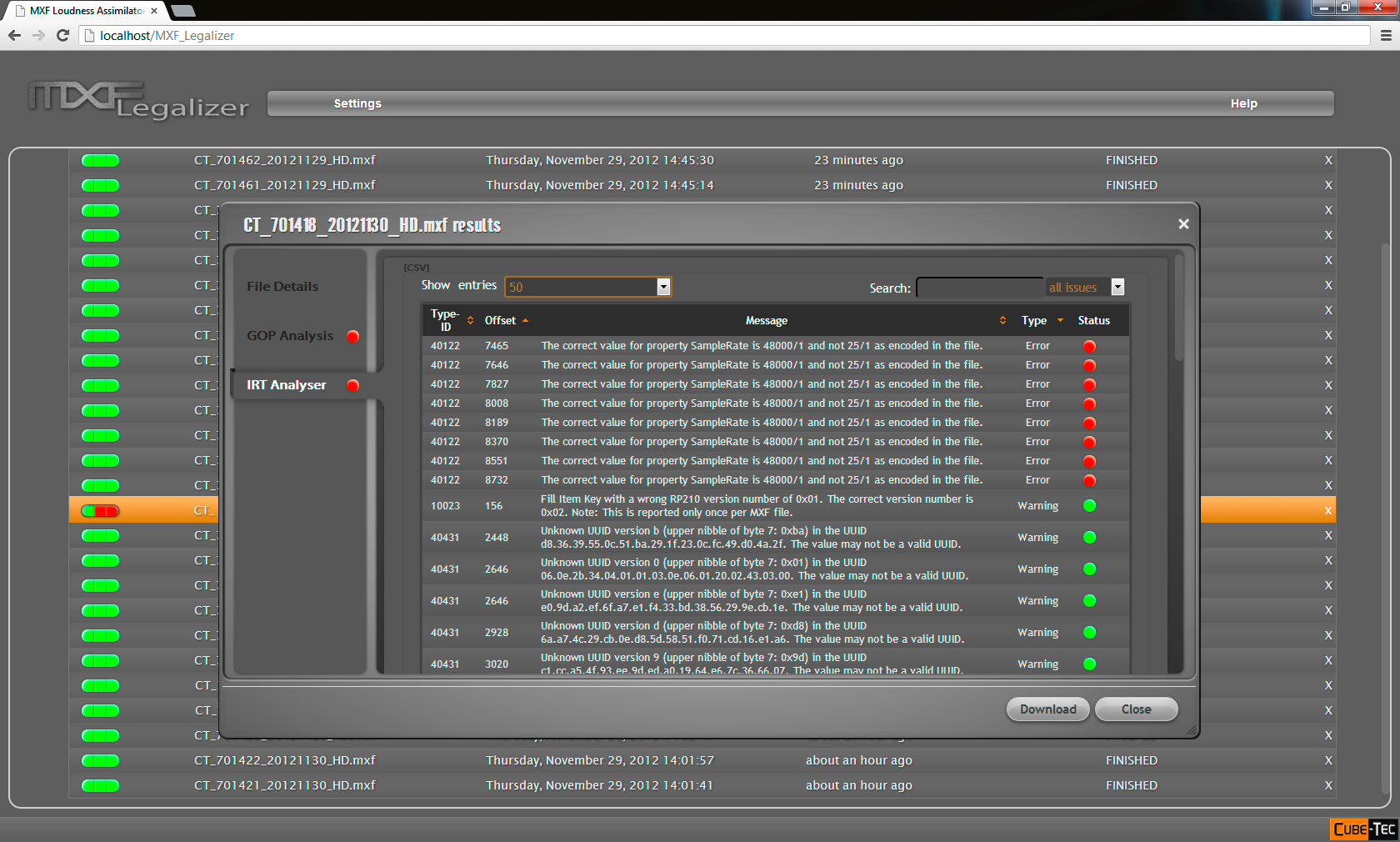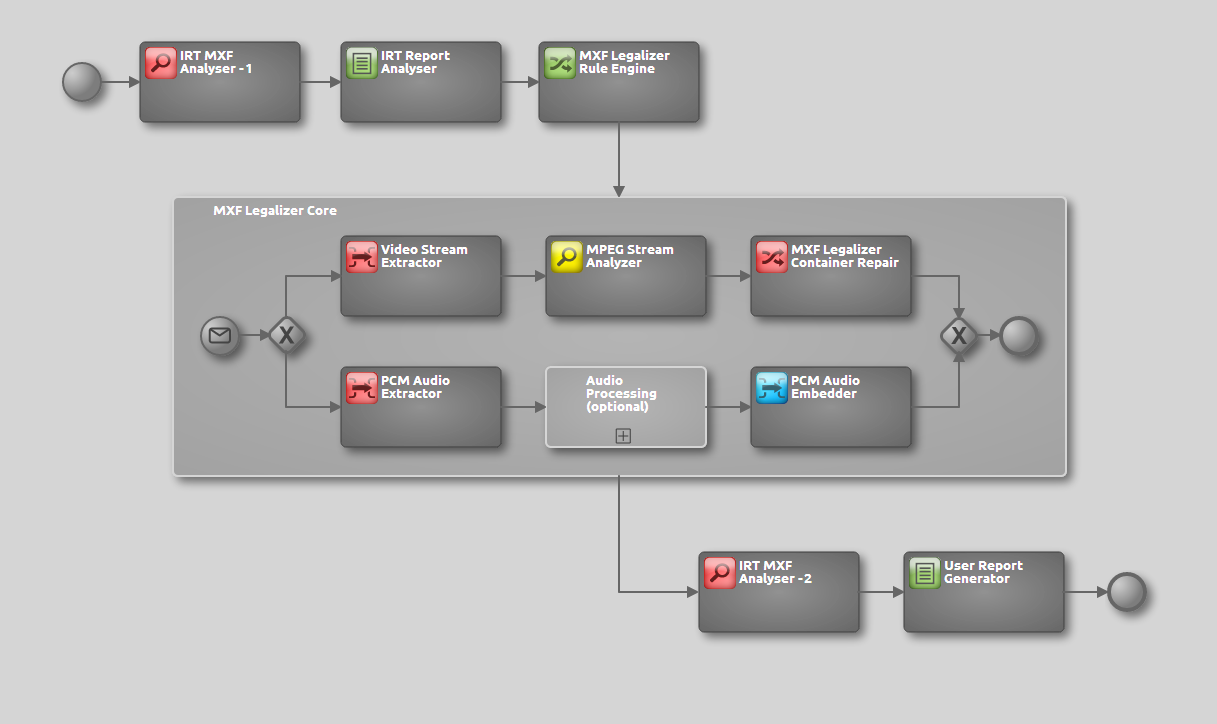Hamburg, 31. January 2013
Hamburg Open 2013


Thanks for visiting Hamburg Open 2013
This year we had a very special surprise for our visitors at the Hamburg Open event. We provided private sessions with live demonstrations of the MXF Legalizer installation direct in the production rooms of Studio Hamburg Postproduction. Visitors could watch MXF Legalizer working on a live batch job validating Studio Hamburg MXF files. With a second installation we presented CubeWorkflow 2.0 and showcased how MXF Legalizer can be used within different File-based Workflow environments. Thanks to the full integration of theIRT MXF Analyser visitors were able to comfortably compare IRT Analysis Reports before and after the MXF Legalizer.
MXF Legalizer Online Service
Aim of MXF Legalizer is to achieve the highest possible interoperability with MXF files by removing compatibility issues that can arise while using MXF files on different systems and products developed by different manufacturers. MXF Legalizer Online Service provides a web based front-end which allows users to upload, analyse, process and fix structural issues in MXF files and then download the fixed files again.

MXF Legalizer deeply analyses an MXF file and automatically modifies the file structure without affecting the essence itself. In addition, MXF Legalizer will clean-up file internal mismatches in structural metadata. For the analysis of MXF container issues Cube-Tec has integrated IRT‘s MXF Analyser as an optional preprocessing step into the MXF Legalizer Online Service. Analysis results of the IRT MXF Analyser are processed fully automatic to configure the internal settings of MXF Legalizer in the best possible way for every single MXF file.
After the MXF legalizing process, the IRT MXF Analyser is also checking the resulting MXF file. The pre- and post-analysis results are now correlated automatically and differences between both versions are highlighted. This way fixed errors as well as remaining IRT MXF Analysermessages are shown clearly arranged in the web browser report. Further, functionality was implemented that allows finding errors not only in the MXF container, but also in essence streams.

For this, surveillance of MPEG data streams was integrated. This allows to automatically detect errors in the GOP structure as well as other problems in the MPEG encoding that can lead to problems during playout. All detected issues are consolidated, and the file can be checked against requirements of the SMPTE RDD-9 document. On a glance, you can see whether a file is still problematic or if it could be fully corrected automatically. In case that it could not be corrected automatically, you get clear guidance on where to find the error cause(s).

